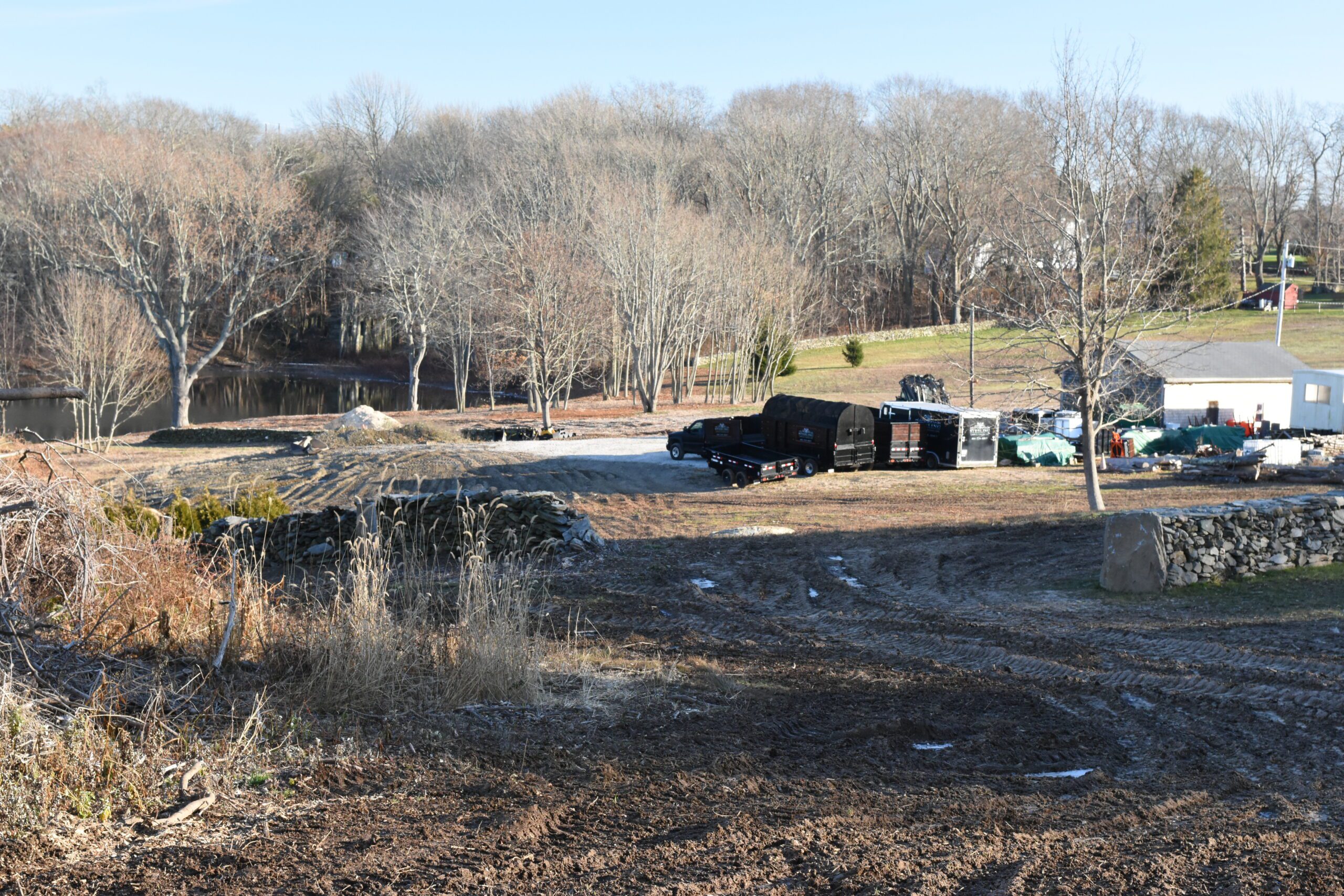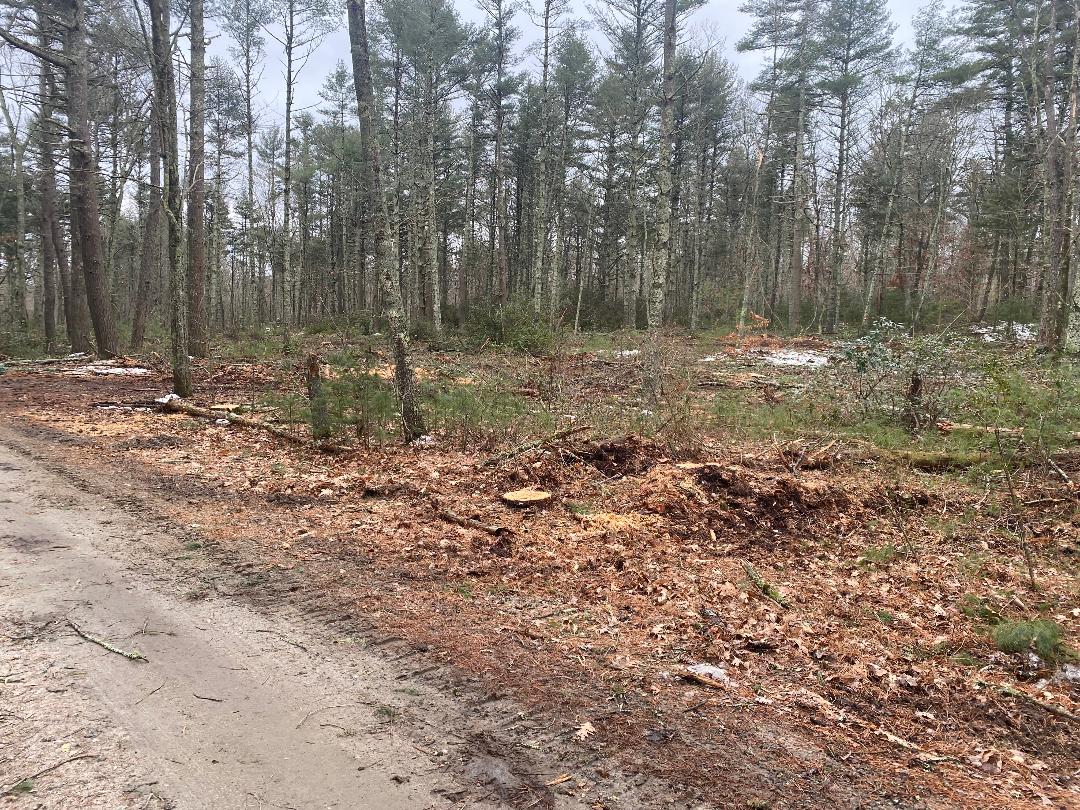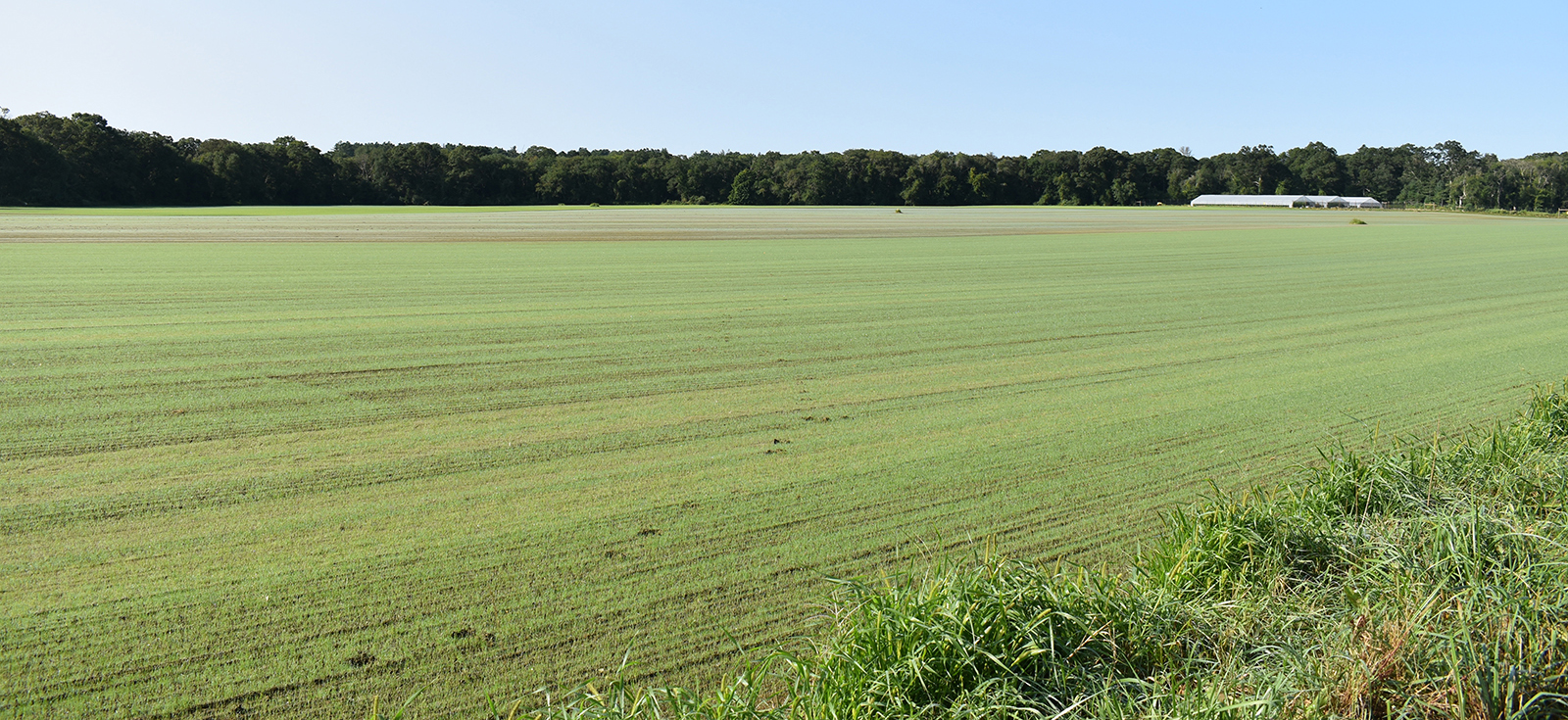Bill Would Add $16M to Green Economy Bond for Land Preservation
February 12, 2024
PROVIDENCE — State lawmakers and environmental groups are teaming up to plug a funding gap and save Rhode Island’s land conservation programs.
A bill introduced by Rep. Megan Cotter, D-Exeter, would inject $16 million into this year’s Green Economy Bond to fund four separate programs to protect land from development and provide a healthy boost for the state’s environment.
The programs — which include money for state and local open space acquisition, farmland preservation, forest management, and habitat restoration — are usually included in a single bond question to be approved by voters every two years.
But the state budget proposal announced last month by Gov. Dan McKee included no money for these programs in this year’s $50 million environmental bond question and, if passed, it would be the first time in nearly 40 years funding for the state’s conservation programs did not appear on the ballot.
The governor’s office did not respond to multiple inquiries from ecoRI News on why land conservation was left off the bond question.
Cotter’s bill would set aside $5 million for farmland preservation, $5 million for state open space acquisition, $3 million for local open space acquisition, and $3 million for forest management within the state Department of Environmental Management. The bill garnered more than 30 co-sponsors by Tuesday afternoon from representatives across Rhode Island and the aisle — two Republicans signed their name to co-sponsor, including Minority Leader Michael Chippendale, R-Foster.
Meanwhile, the state’s conservation organizations said they were caught off guard over the lack of money for state land protection programs in the governor’s budget. Kate Sayles, director of the Rhode Island Land Trust Council, told ecoRI News she was “surprised” by the lack of funds.
“We traditionally rely on the green bonds for all of the programs we use for land conservation and farmland conservation,” Sayles said. “We know through years and years of data from The Nature Conservancy that clean water and land are what sells the green bond.”
Land conservation has big benefits to the local economy. According to Wildlands, Woodlands, Farmlands & Communities, a New England conservation advocacy group, states in the region see an economic return of between $4 and $11 for every $1 of state funding spent on land conservation. How that wealth is spread around may not be equitable, however; a study by the University of Rhode Island published last year suggested wealthy and white homeowners may be reaping the benefits of land conservation.
Diane Lynch, president of the Rhode Island Food Policy Council, and a longtime member of the Agricultural Lands Preservation Commission (ALPC), the state’s chief driver of farmland preservation, said she was “very disappointed” the governor proposed no money for farmland preservation for the second bond question in a row. Without a fresh infusion of cash from the green bond, the program was unlikely to have enough cash to function, according to Lynch.
“We’ll be down to where we were with less than $500,000,” she said. “Then we’re scratching our heads, can we even do any deals? It’s like running your car down to empty every time you’re out on the road.”
It’s not the first time farmland preservation has been left off the ballot. The 2022 green bond contained money for open space acquisition, forest management, and habitat restoration, but no money for the ALPC’s farmland preservation activities. Lawmakers had to swoop in and grant the ALPC a $2.5 million allocation to keep the program running.
But despite the allocation last year, the ALPC’s entire working budget is essentially spoken for; the program has a massive backlog of farms and other unfunded projects remaining in its queue. Lynch said there were 16 high-priority farms the ALPC wanted to work with, totaling about 1,500 acres of farmland at a cost of around $25 million.
And that’s just the highest priority farms identified by the program. Lynch said there were another 2,500 acres of farmland not included in the list for various reasons.
Meanwhile, other environmental programs funded by bond money have spent their funds or are about to. According to DEM, the State Land Conservation program has less than $1 million unobligated funds leftover from the 2022 green bond and the department is currently in the process of awarding $2 million in grants to groups and communities to protect open space at the local level.
DEM has said it has fully allocated (but not completely spent) the $3 million for forest and habitat restoration it was awarded in 2022 bond funds. Half the money has been used to remove hazardous dead standing trees in state management areas, including those areas previously impacted by spongy moth infestations, and $360,000 for an ongoing shaded fuel break project in Arcadia.
DEM said $700,000 will be used to develop a management plan for each of the agency’s management areas; $500,000 will go toward invasive pest control; and $300,000 will be spent on targeted prescribed burns on state-owned lands.
In December, DEM opened the RFP process for the $3 million in watershed protection bond money. Eligible projects have until Feb. 28 to submit applications.
Land conservation in Rhode Island, both for farmland and forestland, is headed toward a tipping point. Large landowners and farmers, many of whom are reaching retirement age, are facing pressure from development like never before, whether from developers interested in subdivisions or solar companies looking for the next best site for ground-mounted arrays.
While Sayles is advocating for the state to do more for land conservation, she doesn’t see it as directly competing with affordable housing or solar projects, but more as vital parts of a whole.
“Rhode Islanders deserve a safe and healthy place to live with access to green space, cleaner air, clean water and food, that’s it,” she said. “We can all agree there’s an affordable housing crisis, that’s not something that should be seen as external from land conservation, or renewable energy, or transportation or human health.
“If we start at a baseline and recognize we all need a safe place to live with those things, then discussing it as a local land use issue where we’re all working together to ensure we are getting those things puts us all in a better position.”




So glad to hear these important programs may receive continued funding. Would be helpful to know what the bond number is so I can contact my legislatures to ask them to support, and to keep track of the bill’s status.
Without state funding, nearly all RI land conservation organizations are simply out of a job.
Many of you have already heard that the current Rhode Island fiscal year 2025 state budget does not include any funds for land and water conservation programs that we in the Burrillville Land Trust utilize to do our work. That means for us and for all those local and statewide land conservation organizations, there is no funding for the State Open Space program. No funding for the Local Open Space grant program. No funding for Farmland Protection. No funding for forestry conservation or management initiatives. No funding to save what little we have left. The only bond that is being proposed doesn’t include any funding that is typically included for wastewater treatment and Narragansett Bay, and watershed restoration. That means that our water quality is at stake. Our forests are at stake. Our land and soils and the beauty of Rhode Island is at stake of being lost forever.
Without these state authorized funds, the Burrillville Land Trust and all the other 54 land trusts in the State of Rhode Island are unable to partner with the state to utilize Green Bond funds to leverage significant federal and philanthropic funds to conserve important landscapes, watersheds, farms and the special places that benefit all Rhode Islanders.
Every land trust and foundation’s grant of money to a land trust requires some type of state match or federal matching funds to go along with the foundation’s funds. Without that match, the foundation agency’s funds goes away…it ceases to exist. Without that funding, most land conservation organizations are simply out of a job.
As an example, think of the recent acquisition of the Ernie and Norma O’Leary Agricultural and Conservation Area. No less than four foundations, and a host of individual gifts were needed to match the funds from the State Open Space grant received by the land trust. All of the matching funds depended on that State grant. Without that initial state grant, the O’Leary property would not have been purchased for Open Space and Agricultural preservation. The Burrillville Land Trust would not own it now and eventually those 65 acres would have been developed into housing lots.
State wide, for every conservation dollar invested by the State of Rhode Island, our land trust conservation community historically raises $1.70 in matching funds for conservation. If RI FY2025 state budget proceeds as is, the land trust community’s work will become far more difficult to acquire property and save our sense of place. And for some, such as the Burrillville Land Trust, our work will become nearly impossible to do.
I am asking you, in behalf of the Burrillville Land Trust to contact your local and state representatives asking them to write the Governor and ask to include an open space, agriculture bond referendum in the fiscal year 2025 State of Rhode Island budget and place that request in the November 2024 election. That bond referendum would include funds for the preservation of open space, agricultural land, forests, and important landscapes.
In 1963, then Governor John H. Chafee was the first in Rhode Island to champion ‘open space’ land set-asides as part of his ‘Green Acres’ program. And he continued that service and activity as U.S. Senator in promoting progressive programs of environmental management. Since 1963, there has been open space, green acre agriculture bond referendums and the like, on every election cycle ballot in the State of Rhode Island. Every single one. As of now, this will be the first time in 61 years that an open space bond referendum will not be in the state budget and sub-sequentially not on the ballot in November 2024.
Every election cycle, the voters in the State of Rhode Island have overwhelmingly voted to approve bond referendums to preserve Rhode Island’s sense of place, farms, forests and open spaces. We are a state that values this sort of thing. Open space, our forests, waterways, agricultural lands are part of our history and in our DNA – always has been. We can’t let our land, our water and our forests be ignored. Ask the Governor to change the budget and include funds for acquisition. You need open space. I need open space. We all need this.
You can fill in a form and send to the Governor of the State of Rhode Island here:
https://governor.ri.gov/contact
Or write a letter here:
Office of the Governor 82 Smith Street Providence, RI 02903
Or call and leave a message here: (401) 222-2080
You can write your state representative here:
Senate: https://www.rilegislature.gov/senators/default.aspx
House: https://www.rilegislature.gov/representatives/default.aspx
Paul A. Roselli is president of the Burrillville Land Trust. The Burrillville Land Trust recognizes that our lands were once owned, lived on and managed by peoples of long ago for thousands of years. The Burrillville Land Trust is an all volunteer, private land trust in Burrillville. The land trust owns nearly 300 acres and manages 36 acres under two conservation easements. The mission of the Burrillville Land Trust is to preserve and protect the rural character of Burrillville through education, advocacy and acquisition. The land trust is not connected with town government. All the land trust properties are managed by volunteers who love the forests and woods, the plains, lakes, ponds and streams and all that live in these habitats.
Thank you Rep Cotter. The bill is H7550 and was assigned to the Finance Committee. It should be a priority for the environment community.
Also left out of the Governor’s Green Bond proposal is funding for bike infrastructure. In 2016 and 2018 it had been included and that is why we for example have the bike path to URI. The Alviti regime at DOT has done almost nothing to expand or improve bike infrastructure, and though a bicycle is by far the closest to a “zero-emission” vehicle, DEM seems to have lot all interest in biking and mostly ignores it in their climate plans for reducing transportation emissions
Fire Alviti
I have always supported bonds to protect farmland in RI, and will in the future. I have proudly supported the Cumberland Land Trust since it was founded in the 1980s.
And so my question: I read about our state’s “housing crisis” and need for affordable housing. Our state’s leaders are forcing more wind and solar on ratepayers – and soon. And so, where is the housing and solar farms to go? Sure, we can put solar on brownfields and perhaps get creative in parking areas and highway medians. Do we see all “affordable housing” in reclaimed city lots? What is the preference of environmentalists? While “all of the above” might be a fanciful answer, things probably won’t play out that way. Will some farm and forest be sacrificed for housing and solar? I just wonder what the “holistic” answer is. Today’s story is just one small piece of the state’s “green puzzle.” But other advocates prefer other endeavors. How does this play out?
I would definitely support this bond if it didn’t have $3 million allocated to logging on state land.
It’s too bad since the rest of the bond is great.
Nathan Cornell
President of the Old Growth Tree Society